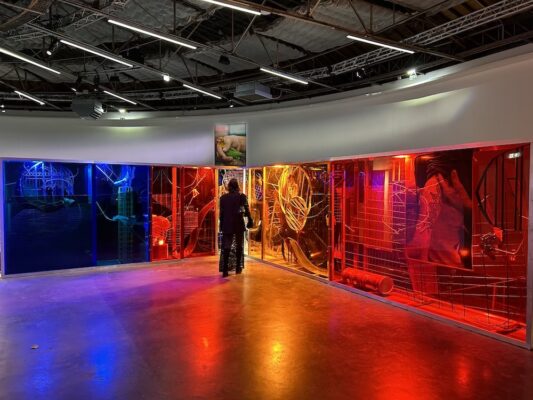Search
To search for an exact match, type the word or phrase you want in quotation marks.
A*DESK has been offering since 2002 contents about criticism and contemporary art. A*DESK has become consolidated thanks to all those who have believed in the project, all those who have followed us, debating, participating and collaborating. Many people have collaborated with A*DESK, and continue to do so. Their efforts, knowledge and belief in the project are what make it grow internationally. At A*DESK we have also generated work for over one hundred professionals in culture, from small collaborations with reviews and classes, to more prolonged and intense collaborations.
At A*DESK we believe in the need for free and universal access to culture and knowledge. We want to carry on being independent, remaining open to more ideas and opinions. If you believe in A*DESK, we need your backing to be able to continue. You can now participate in the project by supporting it. You can choose how much you want to contribute to the project.
You can decide how much you want to bring to the project.

«Signal» is the exhibition that the Palais de Tokyo is dedicated to Mohamed Bourouissa and his team of collaborators. Bourouissa works from intimate experiences to create collective stories that draw on the roots of bitterness (seum in Arabic). These experiences include, for example, the imprisonment of bodies and the restriction of thought, the representation of identities, the determination and control of language, plant-based forms of care, music and color, informal economies, alienation and resistance.
On the other hand, «Past Disquiet» is a documentary and archival exhibition that traces the histories of political engagement and solidarity within the international anti-imperialist movement from the 1960s to the 1980s. The result of the research was initiated in 2008 by curators Kristine Khouri and Rasha Salti. The exhibition takes as its starting point the forgotten and transcontinental histories of four “museums in exile,” or “solidarity museums.” These museums, conceived as traveling exhibitions, embody the global artist community’s support for the liberation struggles of the Palestinian and Nicaraguan peoples, and for the struggle against the Pinochet dictatorship in Chile and the apartheid regime in South Africa.
At a time when international geopolitical evolution is a palimpsest of times and spaces in crisis, the exhibition «Dislocations» brings together fifteen artists from different generations and backgrounds (Afghanistan, France, Iraq, Iran, Lebanon, Libya, Myanmar, Palestine, Syria and Ukraine) whose work is marked or informed by the experience of exile, of being torn between here and there, between past and present. Their practices are based on ancestral knowledge and contemporary technologies, humble gestures and poor materials. The aim is to pay homage to the vital necessity and intensity of artistic creation through fragmented narratives that combine displacement, imprisonment and war with resilience and reparation.
Finally, the group show «Approaching Unreason» addresses institutional psychotherapy, an experimental psychiatric practice that began to develop in the mid-20th century, centered on the conviction that if we want to take care of the sick, we must first take care of the hospital. That is, we must never isolate mental disorders from their social and institutional contexts. Drawing inspiration from these revolutionary psychiatric and human practices that draw on the collective and artistic creation, this exhibition explores different ways of transforming places of isolation into places of protection that can offer safe havens from the violence of society.
(Cover image: “SIGNAL” by Mohamed Bourouissa. Photo: Paco Arteaga)

Paco Arteaga is a 360º journalist: he takes photos and videos, writes, translates, edits in CMS (WordPress, Storyblok) and Photoshop, optimizes SEO, proofreads and manages two blogs: Berlinamateurs.com and Withinflorence.com.m. He is attracted to art in all its manifestations. Portfolio: www.paconeumann.com
"A desk is a dangerous place from which to watch the world" (John Le Carré)